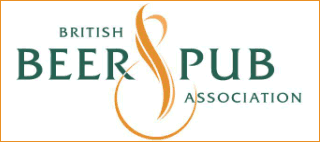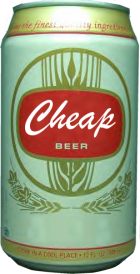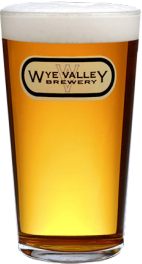 |

|
|

|
|
|
 |

home
about
features
A-Z
books

|

|

features
|

| |
This piece by Roger appeared in the Guardian newspaper at the end of November 2007 and provoked a huge response. We thought it was worthwhile repeating it here.
It ain't necessarily so...
by Willard Clarke, 12/07
In the new edition of the Good Beer Guide I heralded a "golden age" for beer. How do I square this with the report on Monday from the British Beer and Pub Association that painted a picture of our national drink heading for the knackers' yard at breakneck speed?
|
|

|
It's not difficult. The BBPA doesn't speak for all Britain's brewers. In fact, it speaks for a minority of them. Excluded from its ranks are most of Britain's 500-plus craft or micro brewers, most of whom are enjoying a boom in sales.
They concentrate almost entirely on real ale: living, natural, cask-conditioned beer. It's the producers of global lager brands - the likes of Stella Artois, Carling and Carlsberg - that are witnessing a catastrophic decline in demand.
The reasons for the decline are complex. Many consumers are bored with "drinking the advertising". They are looking for new tastes and drinking experiences. Others are wary of mass marketed beers that have
acquired such dubious nicknames as "wife beater" and are believed to be packed with dodgy chemicals. There is a growing concern with provenance - a desire to know the ingredients used to make beer and
whether grains and hops are grown close to breweries or are transported thousands of miles and damage the environment.

|
|
The BBPA is right to bemoan the punitive levels of duty in Britain. We are the second most heavily taxed country in the EU where alcohol is concerned. The French, Germans and Italians have duty rates that are a fraction of ours.
But duty alone cannot explain the fall in beer sales in pubs. The most prominent members of the BBPA - the national giants Scottish & Newcastle, InBev, Coors and Carlsberg - allow their beers to be sold to supermarkets at such enormous discounts that the brewers make only marginal profits from them. But for drinkers who are not too fussed by the quality of the beer they drink, lager at 22p a can in a supermarket beats forking out �2.50 or more for a pint in pubs. So goodbye Dog & Duck and hello Tesco.
Now for some good news. Sales of cask-conditioned beers are growing after years in the doldrums. They have caught the fancy of drinkers who want something that smacks of malt and hops rather than carbon dioxide and Ovaltine.
|
Adnams of Southwold in Suffolk and Timothy Taylor of Keighley, West Yorkshire, are substantial regional brewers, not micros. Both have invested around �10 million in new brewhouses and warehouses to keep pace with
demand. Black Sheep in Yorkshire and Wadworth in Devizes are two more regional brewers who can point to a growing clamour for their beers.
Caledonian in Edinburgh has built sales of its Deuchars IPA so successfully that it is now a national brand, on sale as far away as Cornwall. Marstons, Greene King and Wells & Youngs are classified as "super regionals" producing large volumes of beer, most of it in cask-conditioned form.
At the micro end of the industry, Wye Valley started life in outbuildings of a pub in Hereford and has moved into the former Symonds cider factory at Stoke Lacy. It brews 15,000 barrels a year, far more than some long-established, family-owned brewers, and has invested �1 million in new plant.
Former BBC broadcaster Alex Brodie gave up the day job to launch his Hawkshead Brewery in Cumbria and within a few years has had to move to a bigger site. In London, the Meantime Brewery in Greenwich has carved out a new route to market with a superb range of bottled beers, including an India Pale Ale and a London Porter based on genuine 19th century recipes.
|
|

|
It's the craft brewers that are breathing life back into beer through imagination and innovation. Innis & Gunn in Scotland has notched up remarkable sales for its Oak Aged Beer, matured in whisky casks. Marks & Spencer has just launched a range of bottle-conditioned beers - beers containing live yeast. Waitrose offers Fuller's superb bottle-conditioned Vintage Ale that, at 8.5%, will mature and develop like fine wine.
The BBPA may speak for the big volume brewers but in the world of beer size isn't everything.
|
|
home
about
features
A-Z
books
|

